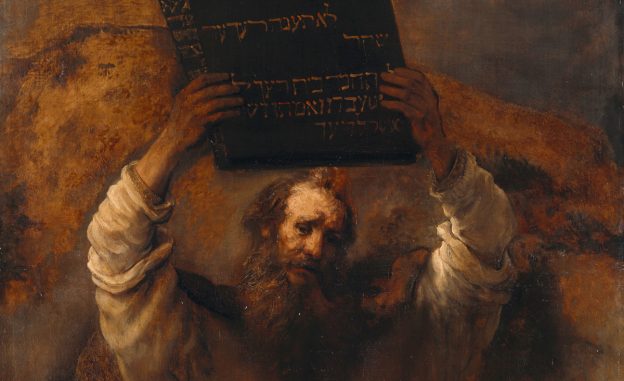Summary
Just about every adult in our country has probably heard of the Ten Commandments. Many probably cannot tell you what they are, but they probably describe them as a bunch of rules to obey. This may even be the case for many professing Christians, who view them as a bunch of rules the Jews had to obey, but irrelevant now Jesus is here.
The Ten Commandments are laws, yes, but they are so much more. They reveal the standard of morality God requires, and they reveal how a people freed from bondage can live a life which pleases God.
While we cannot pass up the opportunity to look at each commandment, we must also remember the context of the Ten Commandments, the principles the commandments teach us about living with God and each other, and how the Israelites received them.
Our Passage Explained
v1
In Moses’ time, nations related to each other by treaties known as covenants, which followed a set formula. God, the Great King of the Israelites, is establishing a covenant relationship with Israel, and the Ten Commandments follow this familiar structure.
The Commandments are the “principles” on which the rest of the Law builds (eg, later in Exodus and in Deuteronomy). They also come directly from God, because it is God who speaks these principles to Israel (v.1).
The Ten Commandments sound negative, but they are expressed in the context of a positive situation. They prohibit conduct that would affect a loving relationship with God. This is clear from the preamble which God provides.
v2-11
God reminds them of who he is. “I am the LORD your God, who brought you out of the land of Egypt, out of the house of slavery” (v.2). The God they are covenanting with is the Creator of all things, who covenanted with their ancestors, and who freed them from slavery in Egypt.
God not only graciously made them, he graciously saved them. Therefore, his commandments help Israel avoid spoiling the “good thing” they have going! And as the Great King who rescued them and placed them in such a positive place, let alone their Maker and Sustainer, God is perfectly entitled to set the terms of the relationship!
The commandments which follow broadly fall into two categories. The first category, the first four commandments, cover the relationship between them and God. They ban idolatry and require the strict worship of only God (v.3). They ban images of God; because God must reveal himself and be worshiped as he is, instead of being imagined and pictured as if he is part of Creation (vv.4-6).
Nor may Israel misuse God’s name for false worship, speaking blasphemy, or treating God like some cosmic servant who acts on demand (v.7). Instead, they must revere God, and worship him as he requires. This includes patterning their lives after God, and setting aside the Sabbath for rest and worship of God like God did at Creation (vv.8-11).
v12-21
The second category of commandments cover how they should treat others. Children should honour their parents (v.12), as families are the bedrock of a healthily functioning society. Nor should they commit murder, adultery, steal, or make untrue statements about others (vv.13-16). Finally, they must respect the possessions of others (v.17), instead being content with what God chose to give them.
The announcement of the Ten Commandments, along with the terrifying thunder and fire that accompanied God’s presence, left the Israelites in fear (v.18). They retreated from Mount Sinai, begging Moses to mediate for them (v.19). Moses, before going up to God, told the Israelites that God’s terrifying presence was to give them such a taste of his power and glory that they would not sin (vv.20-21).
Our Passage Applied
As we reflect on this passage, we must recognise first of all that these are God’s very words spoken. They are not abstract principles from a legal textbook, but the expression of God’s moral will. Since they reveal God’s moral standard, they have continued relevance to us all, even though revealed at a particular time and place.
The Commandments reveal our sin to us, because we cannot come into God’s presence and not see our sin. They show us how we fail to love God, and to love each other. But the Commandments also help drive us to Christ. Jesus uniquely met the standard God requires, and suffered the punishment for our sins, to free us from bondage to sin.
We should also recognise that the Ten Commandments are given in the context of privilege. The Israelites were redeemed from bondage to serve God, and blessed with relationship with him. Likewise, as we approach the Commandments, they not only reveal God’s standards but do so in a context of great blessing, having received forgiveness for our sins through Jesus Christ.
The Ten Commandments for us are not a spoilsport list of no-nos, but God’s revelation to help us live thankful lives. When we see the Law by Christ fulfilled, and hear his pardoning voice, it changes us from slaves to God’s children, and duty into choice.
Image: Moses Breaking The Tablets Of The Law (1659) By Rembrandt (1606-1699)


